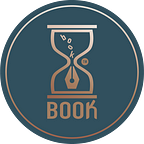How Blockchain Technology is Revolutionizing the Publishing Industry: A Look into NFTBOOKS
The publishing industry has been around for centuries, and while it has evolved over time, the basic concept of printing words on paper has remained largely the same. However, with the rise of blockchain technology, the publishing industry is undergoing a new transformation that promises to revolutionize the way books are written, distributed, and consumed.
Blockchain technology is a distributed ledger that records transactions in a secure and transparent manner. It was originally designed to power cryptocurrencies like Bitcoin, but its potential applications go far beyond finance. In recent years, blockchain technology has been applied to a wide range of industries, from healthcare to supply chain management.
One industry that has been particularly impacted by blockchain technology is the publishing industry. In this article, we will explore how blockchain technology is being used to publish books, and how it is transforming the publishing industry.
Non-Fungible Tokens (NFTs) for Books
One of the key applications of blockchain technology in publishing is the creation of non-fungible tokens (NFTs) that represent unique digital assets. NFTs are digital assets that are stored on a blockchain, and each one is unique and cannot be exchanged for another asset. This makes them ideal for representing digital copies of books, which can be bought and sold in a secure and transparent manner.
When an author creates a digital copy of their book, they can mint an NFT that represents that book. This NFT can then be bought and sold on a blockchain-powered marketplace, and the author can receive royalties directly from their readers. This ensures that the author is fairly compensated for their work, and that each copy of the book is verified as an original.
Smart Contracts for Publishing
Another application of blockchain technology in publishing is the use of smart contracts. Smart contracts are self-executing contracts with the terms of the agreement between buyer and seller being directly written into lines of code. They allow for automatic execution of transactions when certain conditions are met, which can streamline many aspects of the publishing process.
For example, a smart contract could be used to automate the distribution of royalties to multiple parties involved in the creation of a book, such as co-authors or translators. This eliminates the need for a middleman and ensures that each party receives their fair share of the royalties.
Security and Transparency in Publishing
One of the biggest advantages of using blockchain technology in publishing is the increased security and transparency it provides. With blockchain, each transaction is recorded in a decentralized, tamper-proof ledger, which makes it nearly impossible to falsify or manipulate data. This provides an added layer of security for authors and publishers, and ensures that royalties are paid out fairly and accurately.
Furthermore, blockchain technology allows for greater transparency in the publishing process. All parties involved in the creation and distribution of a book can access the blockchain to view the transaction history and ensure that everything is above board. This can help to prevent disputes and ensure that everyone is on the same page.
NFTBOOKS is an innovative blockchain-powered platform that is transforming the way books are published and distributed. Built on the principles of non-fungible tokens (NFTs) and smart contracts, NFTBOOKS provides authors with greater control over their work, while ensuring that readers have access to unique, verified copies of their favorite books.
At its core, NFTBOOKS is a marketplace for NFTs that represent digital copies of books. When an author creates a digital copy of their book, they can mint an NFT that represents that book. This NFT can then be bought and sold on the NFTBOOKS marketplace, and the author can receive royalties directly from their readers.
In addition to providing a marketplace for NFTs, NFTBOOKS also offers a variety of tools and services for authors. For example, authors can use NFTBOOKS to track sales and royalties, automate the distribution of royalties to co-authors and translators, and protect their intellectual property rights.
Overall, NFTBOOKS is a game-changing platform that is bringing transparency, security, and fairness to the publishing industry. By using blockchain technology to create NFTs and smart contracts, NFTBOOKS is empowering authors and providing readers with access to unique, verified copies of their favorite books.
The world of publishing has been transformed in recent years by the advent of blockchain technology. The benefits of this innovative technology are enormous and far-reaching, providing authors with greater control over their work, readers with access to verified copies of their favorite books, and increased security and transparency for all involved.
With the rise of blockchain-powered platforms, such as NFTBOOKS, the publishing industry is experiencing a renaissance that is pushing boundaries and driving innovation. From creating NFTs for digital copies of books to using smart contracts to automate the distribution of royalties, blockchain technology is disrupting traditional publishing models and ushering in a new era of creativity and collaboration.
As blockchain technology continues to evolve and gain traction, we can expect to see even more transformative solutions that empower authors, provide readers with greater access to unique and verified copies of their favorite books, and create a more secure and transparent publishing ecosystem for everyone involved.
In short, the future of publishing looks brighter than ever before, thanks to the groundbreaking work of platforms like NFTBOOKS that are leading the way towards a more equitable and sustainable publishing ecosystem. With the power of blockchain technology on their side, authors and readers alike can look forward to a world of endless possibilities, where creativity and innovation know no bounds.
